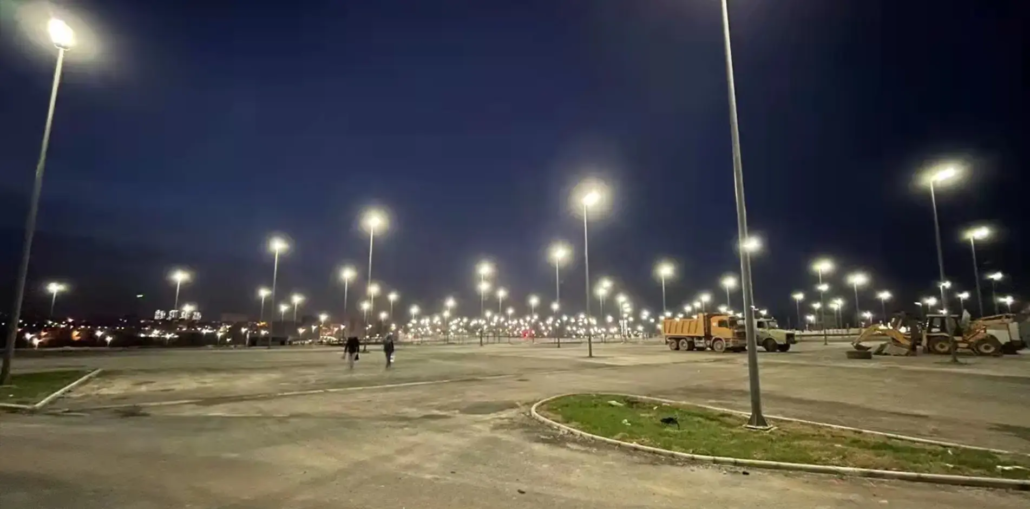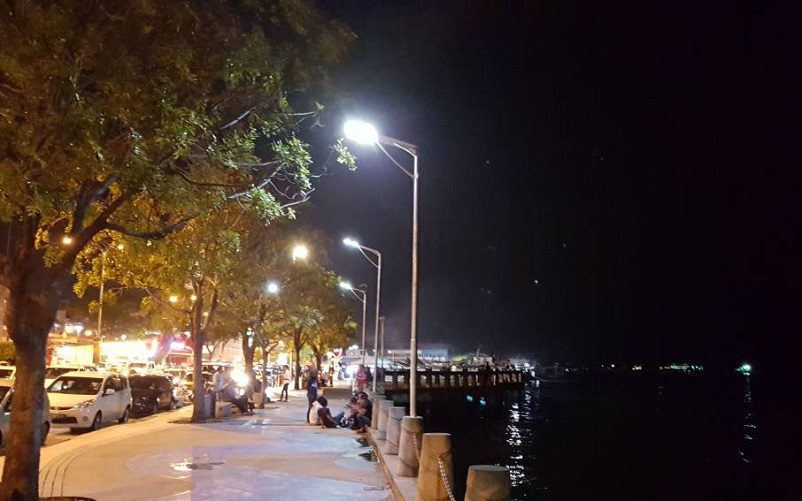Compiled based on international lighting standards (CIE, ANSI/IES, EN series), focusing on core elements such as luminance parameters, light quality, solar power system optimization, and return on investment.
I. Lighting Performance Parameter Design Standards
1. Illuminance (Lux) and Luminous Efficacy (lm/W)
Illuminance classification (based on CIE 115:1995 and CJJ 45-2023):
| Area Function | Average Maintained Illuminance (Lux) | Uniformity U0 |
|---|---|---|
| Main plaza / gathering area | 20-30 | ≥0.4 |
| Pedestrian walkways | 10-15 | ≥0.4 |
| Landscape greenery / recreation areas | 5-10 | ≥0.3 |
Luminous efficacy requirement: LED luminous efficacy ≥ 120 lm/W. Prefer chips from Bridgelux (USA) or of equivalent grade.
2. Correlated Color Temperature (CCT) and Color Rendering Index (Ra)
Color temperature range: 2700K–4000K warm white; avoid high CCT blue-rich light hazards (CCT > 4000K can suppress melatonin).
Color rendering index: Ra ≥ 80 (minimum); R9 > 0 (red rendering capability); for high-end scenes Ra ≥ 95 (e.g., in artistic installations).
3. Uniformity and Glare Control
Luminance uniformity U0 (min/avg) ≤ 0.4; axial uniformity UL ≥ 0.5. Threshold Increment TI ≤ 15%, veil luminance ratio ≤ 0.3, and use cutoff-type Type II/Type III luminaires (beam angle ≤ 120°).
II. Luminaire Structure and System Design
1. Pole Height and Material
Height calculation: H ≥ 0.7 × W (W = illuminated width); typical plaza pole height is 6–10 m.
Materials: aerospace-grade aluminum (lightweight + heat dissipation) or hot-dip galvanized steel (wind load > 40 m/s); compliant with ANSI C136.13 corrosion resistance standard.
2. Solar Power Supply System
Autonomy: designed for 3 consecutive cloudy/rainy days; battery capacity = daily consumption × 3 ÷ DOD (0.7).
Module Configuration
- PV panels: polycrystalline efficiency ≥ 18%, tilt angle = local latitude + 5°.
- Battery: LiFePO4 (cycle life > 6000 cycles) preferable to lead-acid batteries.
3. Intelligent Control System
Dual-mode sensing with ambient light sensor and microwave radar (detection range 8–10 m), supports LoRa/NB-IoT remote dimming.
PIR presence sensing for start/stop (180° coverage), off-delay upon leaving to save ~30% electricity.
III. Cost and Return on Investment Analysis
1. Initial Cost Composition (example for 100-lamp system)
| Item | Cost Share | Description |
|---|---|---|
| Solar luminaires | 60% | Includes PV panels, batteries, LED modules |
| Pole and brackets | 25% | Aerospace aluminum material |
| Intelligent control system | 10% | Sensors and communication modules |
| Installation and commissioning | 5% |
2. Operational Savings and Return
Electricity savings: grid electricity replacement rate assumed at 100%; annual electricity savings ≈ lamp power × 10 h/day × 365 days × local electricity price.
Maintenance costs: no cabling, fault rate reduced by 40%, manual inspection costs reduced by 60%.
Payback Period
Payback period (years) = Initial investment / (Annual electricity savings + Maintenance cost reduction).
Typical case: 3–5 years (compared with conventional grid power).
Environmental benefits: Per-lamp annual carbon reduction of 54 tons, in line with ESG rating requirements.
IV. Key Measures for System Optimization
- Degradation-resistant design: use rare-earth phosphor coating; luminous flux maintenance rate > 90% over 5 years.
- Winter adaptability: integrated spiral snow-removal module (60–120 RPM); PA610 material wipers prevent panel snow accumulation.
- Safety redundancy: IP67 protection + 30 mA leakage protection; earth resistance ≤ 10 Ω; SPD lightning protection rating ≥ 20 kA.
Implementation suggestion: Design should include plaza zoning lighting simulations (DIALux or Relux). Favor modular solar systems to support downstream expansion. Through improvements in energy efficiency and maintenance costs, the life-cycle cost of solar plaza lighting can be reduced by 35%–50%, combining functionality with low-carbon economics.
Standards cited: CIE 234:2019 “Urban Lighting Master Plan,” ANSI/IES LP-1-2020, BS EN 13201-3:2015.


